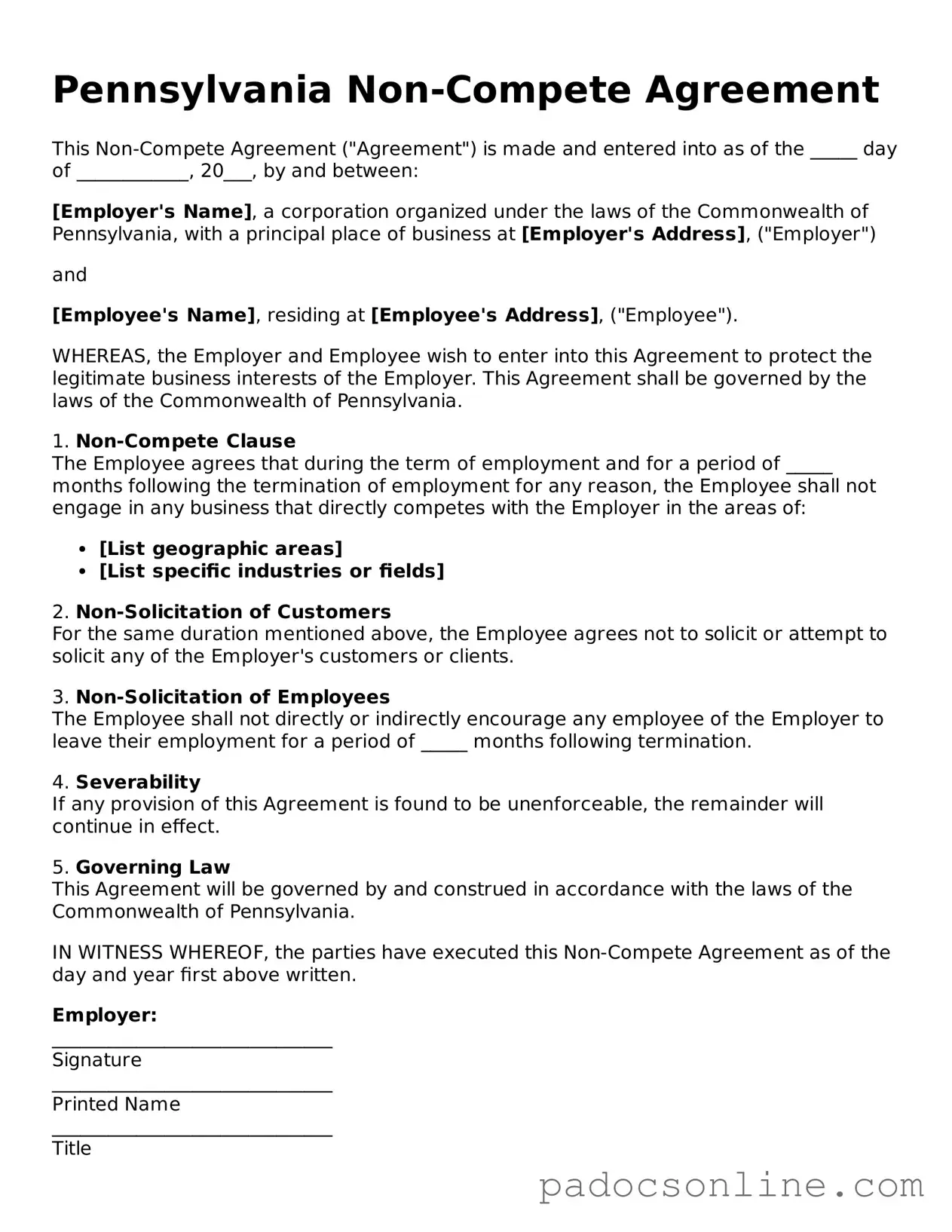Legal Non-compete Agreement Document for the State of Pennsylvania
A Pennsylvania Non-compete Agreement form is a legal document designed to restrict an employee's ability to work for competitors or start a similar business after leaving their current employer. This form aims to protect a company's trade secrets and maintain its competitive edge. To ensure compliance and safeguard your interests, consider filling out the form by clicking the button below.
Fill Out My Form Now

Legal Non-compete Agreement Document for the State of Pennsylvania
Fill Out My Form Now
You’re almost done with this form
Edit Non-compete Agreement online fast and paper-free.
Fill Out My Form Now
or
Download Non-compete Agreement
